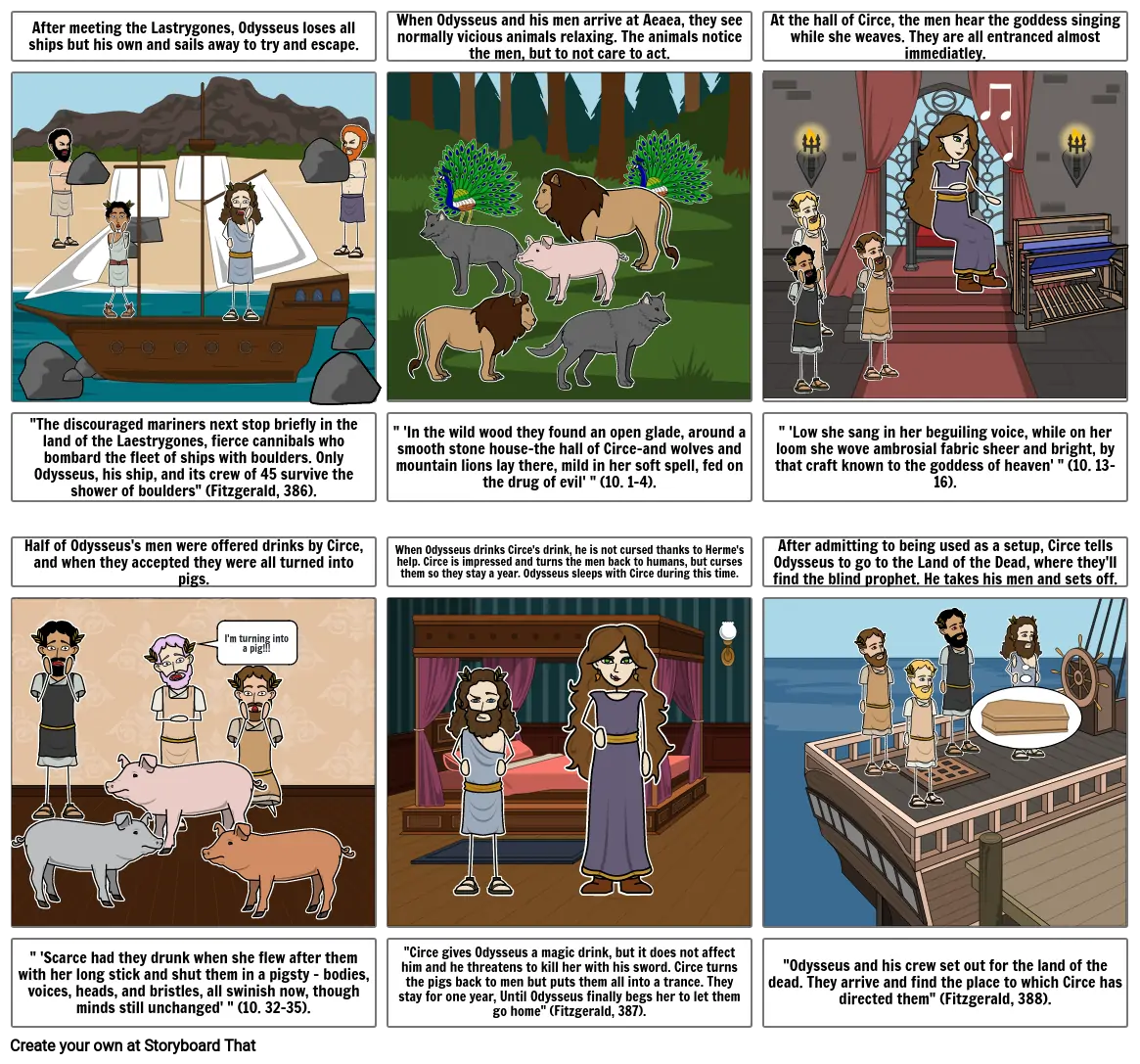Odysseus Storyboard

نص القصة المصورة
- After meeting the Lastrygones, Odysseus loses all ships but his own and sails away to try and escape.
- When Odysseus and his men arrive at Aeaea, they see normally vicious animals relaxing. The animals notice the men, but to not care to act.
- At the hall of Circe, the men hear the goddess singing while she weaves. They are all entranced almost immediatley.
- "The discouraged mariners next stop briefly in the land of the Laestrygones, fierce cannibals who bombard the fleet of ships with boulders. Only Odysseus, his ship, and its crew of 45 survive the shower of boulders" (Fitzgerald, 386).
- Half of Odysseus's men were offered drinks by Circe, and when they accepted they were all turned into pigs.
- I'm turning into a pig!!!
- " 'In the wild wood they found an open glade, around a smooth stone house-the hall of Circe-and wolves and mountain lions lay there, mild in her soft spell, fed on the drug of evil' " (10. 1-4).
- When Odysseus drinks Circe's drink, he is not cursed thanks to Herme's help. Circe is impressed and turns the men back to humans, but curses them so they stay a year. Odysseus sleeps with Circe during this time.
- " 'Low she sang in her beguiling voice, while on her loom she wove ambrosial fabric sheer and bright, by that craft known to the goddess of heaven' " (10. 13-16).
- After admitting to being used as a setup, Circe tells Odysseus to go to the Land of the Dead, where they'll find the blind prophet. He takes his men and sets off.
- " 'Scarce had they drunk when she flew after them with her long stick and shut them in a pigsty - bodies, voices, heads, and bristles, all swinish now, though minds still unchanged' " (10. 32-35).
- "Circe gives Odysseus a magic drink, but it does not affect him and he threatens to kill her with his sword. Circe turns the pigs back to men but puts them all into a trance. They stay for one year, Until Odysseus finally begs her to let them go home" (Fitzgerald, 387).
- "Odysseus and his crew set out for the land of the dead. They arrive and find the place to which Circe has directed them" (Fitzgerald, 388).
تم إنشاء أكثر من 30 مليون من القصص المصورة

